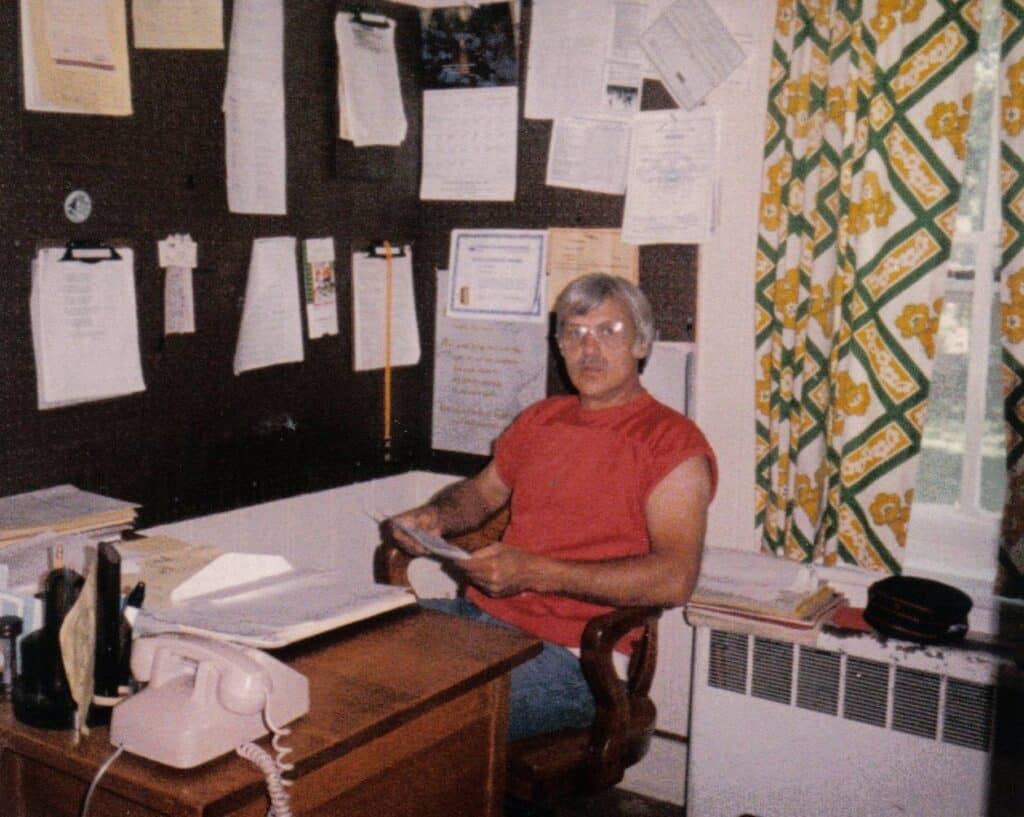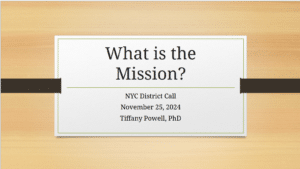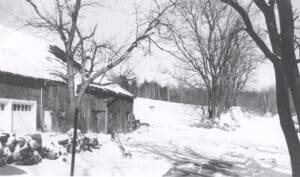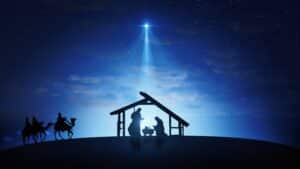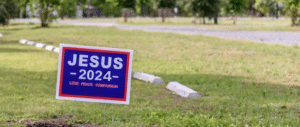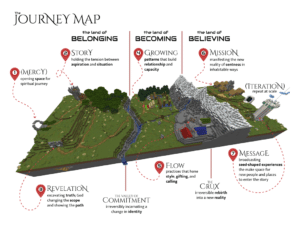First Camp Director
Dale was working for the New York City Department of Social Services as a case worker when the Mennonite city churches began to consider buying land to start a camp. When a property they wanted to purchase was found—now Camp Deerpark—they quickly needed to raise money. The desire for a camp for the youth and churches of New York City ran deep, but the finances did not.
“The asking price was $125,000 and we had $5,000,” Dale said. “I guess we pondered on the biblical story of Jesus feeding the 5,000 people with a few fish and some bread. We offered $85,000 cash and the real estate agent said, ‘That’s a major drop off from $125,000.’ So Glenn Zeager suggested that the agent could help us out by taking a smaller percentage for his fee.
”When the owners accepted the offer, the leadership group interested in purchasing camp had to raise $80,000 in about four months. With one month to go before the closing, Dale quit his job as a case worker to fund-raise. “We still needed to raise about $19,000,” Dale said. “I approached some business people and wrote proposals. I remember a number of people gave $500, which was a significant amount at that time. The pastors in the city and several friends in Pennsylvania also helped with fund-raising. We managed to pull together the money we needed for the closing on May 6.
”After camp was purchased, Dale took on the role of director and worked in this capacity from 1969 through 1977. “I was very interested in the camp vision and had a desire to become more involved in church ministry,” Dale said. “As a result of becoming involved with camp, I began to attend New York Theological Seminary for Bible and theology. At the time camp began I was taking graduate courses at Hunter College in urban sociology. This change in direction was affirmed by my colleagues in the New York City congregations, who were very supportive.”
“As we were getting started, we didn’t have any kind of budget or a treasurer,” he said. “I opened a checking account in my name to pay the bills. But by October of ’69 we had formed a board and Carl Metzler became our first treasurer.”
As a way of fund-raising, in the summer of1969, people were invited to purchase memberships in Camp Deerpark. Full memberships were $200 and associate memberships were $100. There were no entitlements with membership, but the funds supported the camp. People were given a certificate when they joined. “People from Pennsylvania and from New York purchased memberships in the early days, and we raised $10,800 in full memberships and $2,600 in associate memberships by October of that year, which was really helpful,” Dale said. “Though funds were tight over the years, we never missed paying the mortgage.”
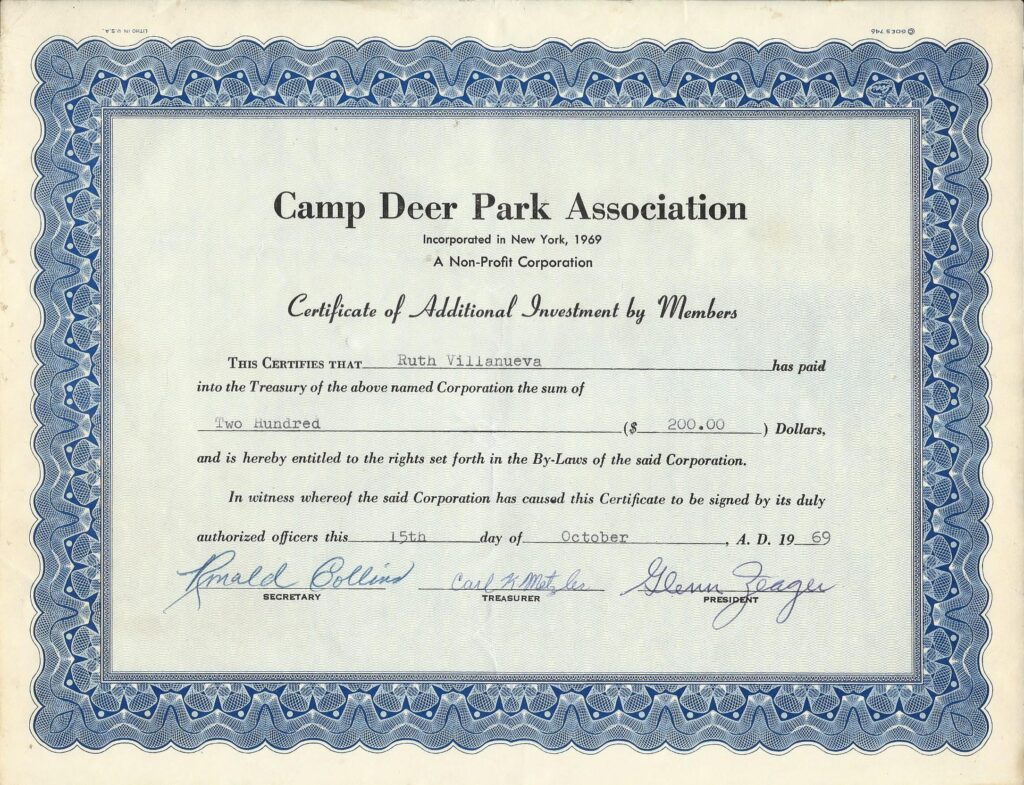
“In the late ’60s and early ’70s, the Mennonite churches in New York City had great interest in working at peace and justice issues,” Dale said, “and the pastors were very engaged with youth programs at the time we purchased camp. All of the city churches had youth groups and were working with youth in a variety of ways, and kids traveled to Camp Hebron and Camp Brookhaven. I was on the boards of Camp Brookhaven and Spring Lake Retreat and had a sense of camp programming. When opportunities to use Camp Brookhaven became more limited, some of us began to ask—why not own our own camp? I did push for it. I felt strongly that a local camp, with our own programming, would be beneficial to our church families.”
“Many of us, including most of the pastors from the city churches, felt strongly that the camp should be owned by the New York City churches. I think that was one of the wisest decisions we made. Today the city churches continue to feel ownership of camp. They can run the programming and are engaged with decision-making.
“Though we stopped sending campers to Camp Hebron, I always felt support from Willie Weaver, the director of Camp Hebron in those early years. Willie helped us out in different ways. One summer Lanny Millette applied to Camp Hebron to be a lifeguard. Willie told him he already had a lifeguard but recommended Lanny call Camp Deerpark. Finding a lifeguard was usually difficult and I was grateful. Lanny came to work for us that summer, and continued to come back for several years.“
Another summer Camp Hebron received a large truckload of granola. It was too much for them and they sent part of the truckload to us. We ate a lot of granola that summer. Another time Willie and I decided to exchange staff for one week—to learn from one another and get to know each other. Camp Hebron had been open much longer than Camp Deerpark, and I thought it would provide a teaching opportunity for our staff. Aldine Weaver and Jim Musser came to Camp Deerpark. Eddie Scott, and I believe Eugene Davis, went to Camp Hebron.
“We had three staff members from the Mennonite Voluntary Service program the first summer. Over the years camp benefited from having many VSers, as well as students who came from the Mennonite colleges. Summer staff was usually a combination of VSers, Mennonite college students and young adults from the city churches. I was determined to have about half of the staff from New York City. Pastors would recommend potential staff members. In those early years we didn’t have any time for long-term training of staff, but we had several days of training at camp before summer camp began. Some of the staff began to return year after year, and learned that way. Now there are counselor-in-training programs that are very effective and there is strong youth leadership developed at camp.
“It was a challenge as we hired summer staff to set the stage so that young people from greatly varied backgrounds could work together. But the staff was always committed to working at relationships. This commitment made Camp Deerpark a special place.
“I will always be very grateful to the people and churches from eastern Pennsylvania. From the very beginning, many people gave money, time and energy because they believed in the ministry of the New York City churches. We would never have made it without them. They helped make our vision a reality by offering many gifts to us. Countless volunteers have come to camp over the years to offer expertise and labor. Experienced trades people would help us out. Youth groups would come and say, ‘I’ll work wherever you can use me.’ These supportive relationships are still developing and continuing today. The Promise Woods project is a current example of our friends in Pennsylvania helping camp to not only survive, but grow and flourish.
“While it was the vision of the early leaders of the Mennonite churches in New York City to purchase a camp, what makes me proud, and has the most meaning to me, is the way so many people caught the vision and continued it for 50 years. Today the vision carries on with the city churches and supporters in Pennsylvania. We continue to have new staff and leaders—new pastors and board members. A large group of people feel connected to and care about Camp Deerpark.
”There are many differences at camp today, yet many similarities to when camp first began. “There is a working budget now,” said Dale, “and there is new growth in Promise Woods.” More staff live and work at camp year round, and campers and summer staff may be second- or third-generation family attenders.
But though there is a budget, money is still tight and the “wish list” for donated items continues to run in camp newsletters. Maintaining the buildings and land takes a lot of work. If Dale walked around the grounds at camp with a can of paint—as he often did in those early years—it’s likely he would find an area or two that needed touching up.
What also remains steadfast is the sight of camp when you round the bend on Brandt Road. If it’s a sunny summer day, you’ll likely see campers on swings or playing basketball. You’ll pass the well-used chapel. Several people may be sitting and talking on the front porch of Spruce Lodge. You might hear the bell ring for lunch. Favorite activities are still swimming, hayrides, singing songs around a campfire and sharing meals together.
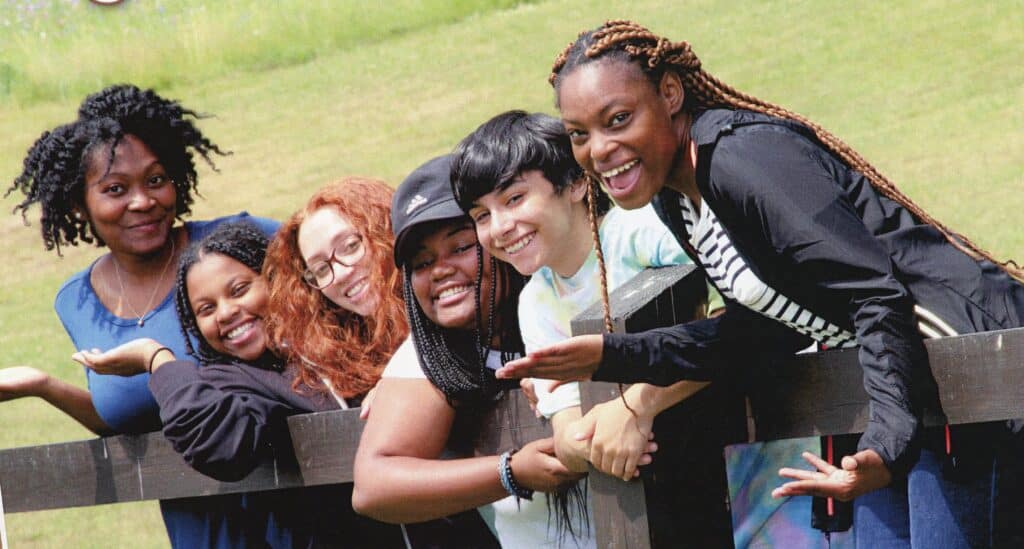
“Doris and I spent many days in those early years figuring out how to help begin and run a new camp and juggle family life,” Dale said. “It was a great deal of work, but also a lot of fun. Our children grew up in the Bronx and at camp. Camp gave us a balance between city life and the country. The camp and its ministry were a blessing to me and my family. It was meaningful to watch all three of our children get baptized there—Duane and Donnain the old flow-through pool, and Deb in the new pool. I developed many close friendships at camp, which I’m still grateful for today.”
“As the first director, I always wanted other leaders to emerge. Our desire from the beginning was to lay a solid foundation so others could build on it,” Dale said. “The vision was a camp with strong spiritual and biblical core values and that continues today.”
—Written by Donna Stoltzfus, former camper and staff.
Dale Stoltzfus, first camp director, attended Glad Tidings Mennonite Church in the Bronx.
Related Entries
Share:
Pain and Need Aren’t Partisan
This is Session 3 of the Prince of Peace: Jesus and Peacebuilding from the Election to the Holidays webinar series. (Click here to sign up for session invites.) Sometimes people seem so different from us, we automatically assume we can’t connect. Or, we tried to connect on some level, but it quickly became way too…
What is A Mission Statement?
On the LMC NYC District call this month, Dr. Tiffany shared critical information on what is and what is not a mission statement. This is critical as we think about moving the congregations in our district forward towards mission, optimize the mission already underway, and align together on the LMC mission as district churches. In…
Advent Calendar
Count Down the Days to Christmas with Camp! Jesus is the center of our Camp community. Let’s celebrate together the coming of the One who brings peace and salvation and life everlasting to humanity. We’ll be posting each day to Facebook and Instagram stories, but you can get our daily post in your email inbox!…
A Spirit-filled Christmas: The Joy in Judgement
The end of this week (Black Friday) marks the beginning of the Christmas season for many. (Though the big-box retailers had stuff out before Halloween, can you believe it!?!) For our culture, this season is a time of Joy. We gather for feasting and presents and the delighting of children. And despite the growing chill…
From Inner Peace to the Holiday Table
This is Session 2 of the Prince of Peace: Jesus and Peacebuilding from the Election to the Holidays webinar series. (Click here to sign up for session invites.) This session is about what we do when the people around us challenge our peace. It requires us to draw on something deeper in order to continue…
Releasing and Loving “The Other Side”
This is Session 1 of the Prince of Peace: Jesus and Peacebuilding from the Election to the Holidays webinar series. (Click here to sign up for session invites.) This session is about what we do with those in our lives who see things differently — even very differently. We do this using a paradigm from…
Story of A Tree
A fresh tree stump is like a magnet to me. I have to look at the rings to read the tree’s story. It’s at once humbling to look inside a living thing that is much longer-lived than yourself, but also encouraging to see how it weathered the ups and downs of life, the good times…
Camp’s Political Endorsement
I’ve been eligible to vote for 30 years, but – like many in my generation – I’ve never felt like a politician or party truly represented me. They may win me at one point, but they’ll loose me in the next. When I have voted, it always seemed I was going to the polls holding…
Prince of Peace
Camp’s mission statement says we offer people the opportunity to fellowship in “serenity”. Serenity literally means “clear skies” — a state of refuge from the storms of the World. Right now, our World does feel pretty stormy with a divided country going into an election and numerous disasters and conflicts abroad and at home. Because…
Mapping Spiritual Journey with NYC Leaders
In order to know where you’re going, it’s a good idea to know where you are. One of the best ways to know where you are is a good map. The NYC LMC District is seeing growth in many of our churches right now, and opportunities for re-inventing and re-launching in others. But these are…
- « Previous
- 1
- 2
- 3
- Next »

